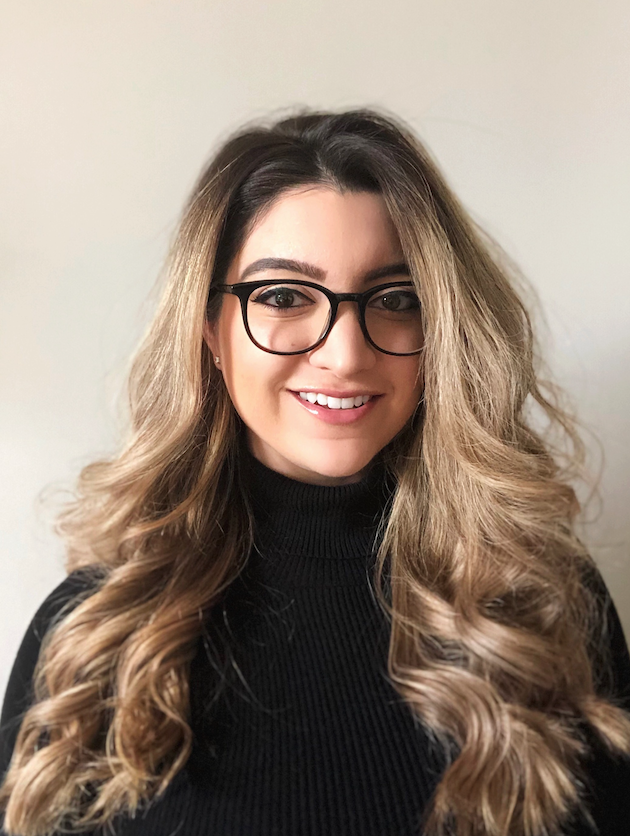 Hillary has published several IP articles including Is it time for a Quarantini? Lessons for COVID-Related Trademarks and Walmart Burned by the Jury in Trademark Infringement Suit.
Hillary has published several IP articles including Is it time for a Quarantini? Lessons for COVID-Related Trademarks and Walmart Burned by the Jury in Trademark Infringement Suit.
I met Hillary during a speed mentoring event at Loyola while I was a 1L and she thereafter became an unofficial mentor. She has been an immensely helpful mentor for me, and I spoke with her about her experience at Loyola and her career in IP.
Why did you choose Loyola and why would you recommend it to another student?
I am from Canada, so I traveled throughout the U.S. looking at different law schools. I came to Chicago in March for the Admitted Students Weekend at Loyola and loved the energy and feel of the school. Everyone was so friendly and welcoming which I appreciated. A 1L gave me her contact information and shared advice about living in Chicago, the workload at Loyola, and the community here. Loyola actually wasn’t my top choice until I visited, but I knew right away that this was the school for me. Ultimately, the law school community was the primary influence on my decision to attend Loyola. Even two years after graduation, I still am touch with some of my professors. It was nice to attend a school where I could build meaningful relationships with students and professors, and where the deans know students by name.
How did you become interested in intellectual property?
I didn’t take a traditional route to law school. My undergraduate degree was in art history, but I always knew that I wanted to go to law school. I knew I wanted to do something more creative with my law degree and IP at Loyola allowed me to do that. For example, I love using my interest for art to protect artists’ work. This field allows me to combine my interest in art with the law, so it is a perfect combination for my interests and skills.
What classes or extracurriculars at Loyola were most valuable to you?
While at Loyola, I did the Rome Program, the London Program, and Vis Moot. Not many schools offer these, so taking part in each was an amazing opportunity. I also took many IP related courses, such as IP Survey with Professor Ho, a specialized IP legal writing class, as well as other, more focused IP classes. For example, I took a copyright class with Professor Sag, which was very helpful for my career. I also found value in taking classes I was interested in, even if they were not IP related because many areas of law are related. I took international law classes because I enjoyed the topic, and these other perspectives became helpful in practice.
How did you end up in your current area of practice or expertise?
Through networking, I made a connection as a 1L and was able to get a position as a law clerk for my 1L summer. In this position, I helped with general, non-IP litigation matters and eventually shared my interest in IP with partners at the firm. I talked with them about my law school courses, including my IP legal writing class. I stayed on as law clerk during my 2L year and then returned as a summer associate the following summer. During that same summer, I was offered a position for my 3L year and I started in the IP group after law school.
When and how do you suggest networking, and what networking advice do you have for current law students?
I suggest going to Loyola organized networking events, such as speed networking (where we met), alumni events hosted by the school, or events organized by other student groups. There are also other organizations that host networking events that I recommend attending. For example, ChiWIP, an organization of Chicago-area IP women, offers several events throughout the year. Although it is tough to network right now during the COVID-19 pandemic, try to seek out virtual events, such as webinars and conferences. Afterwards, follow up with those who you have questions for or would like to build a relationship with. In addition, if you meet a Loyola alum, you can always send a personized email because Loyola alum typically are very open to talking to current students.
As a 1L without much experience, make sure to be genuine and personable. A good resume and GPA are helpful, but they don’t mean everything in a job search. It is okay to be nervous but remember that passion and excitement can help you stand out as a student. In addition, always do you research before you go into an interview or meet with an attorney. You can highlight your strengths and commonalities, which shows initiative and interest.
Any other advice for IP students?
Do not be discouraged if you do not get an IP position right away. The job search has been made more difficult with the current pandemic, so any job that gives you work experience and exposure with attorneys will help. The basic skills of legal writing, researching, and working with attorneys will help you in any legal job, and will transfer over to an IP position when the time comes. And as I mentioned, my first summer I did not do IP specific work. However, that time helped me prepare for when I did eventually work in the IP group. If you are not working in IP, you can stay on top of IP law by researching big IP decisions, and by listening to opinions and oral arguments.

Kiana Baharloo
Assistant Blogger
Loyola University Chicago School of Law, J.D. 2022
